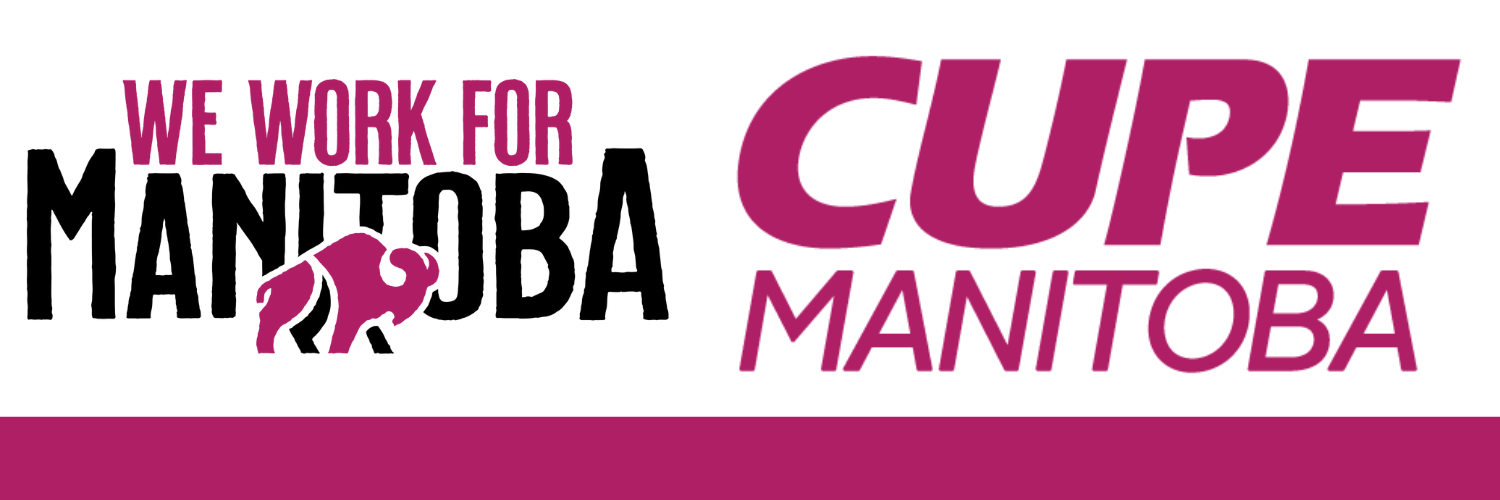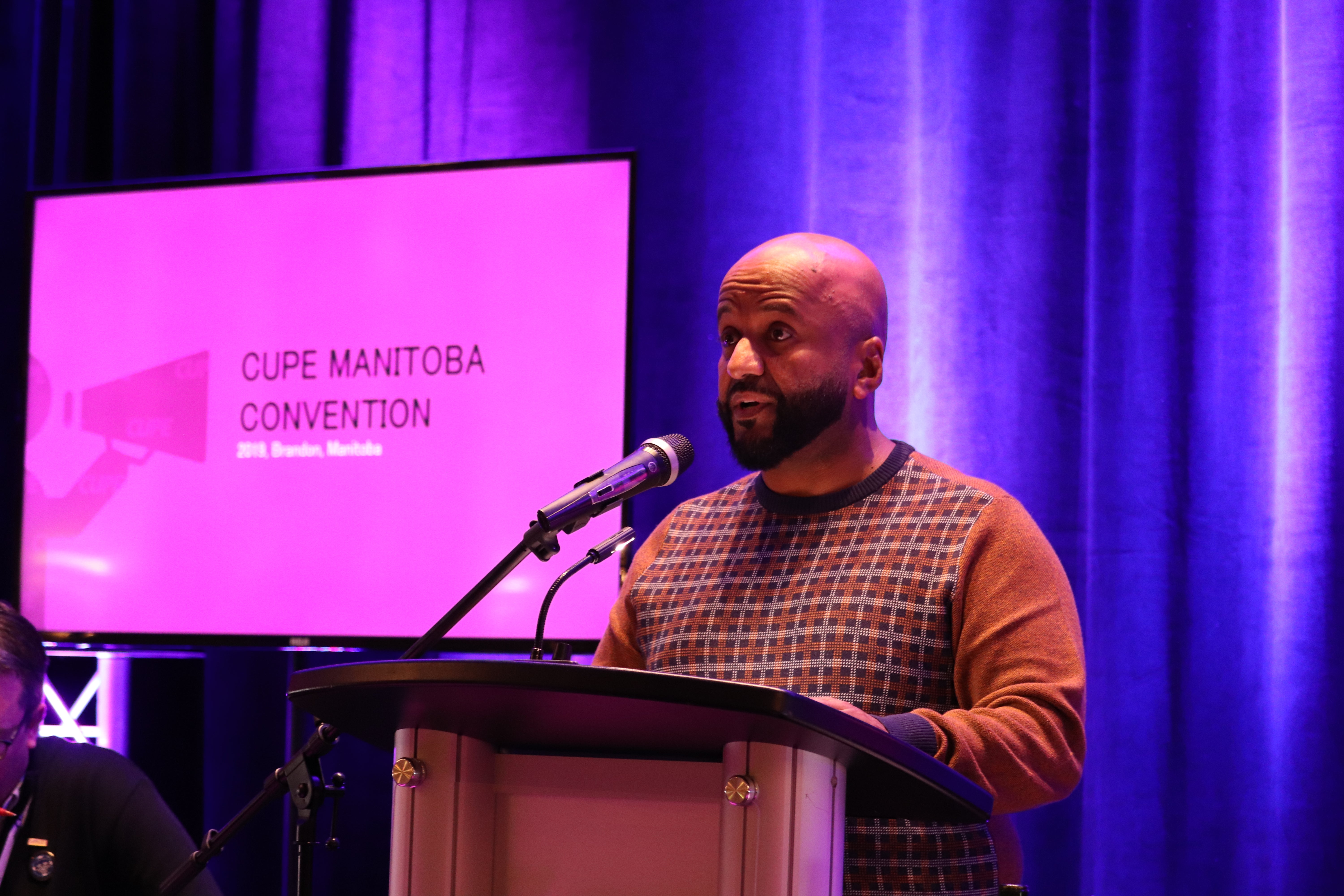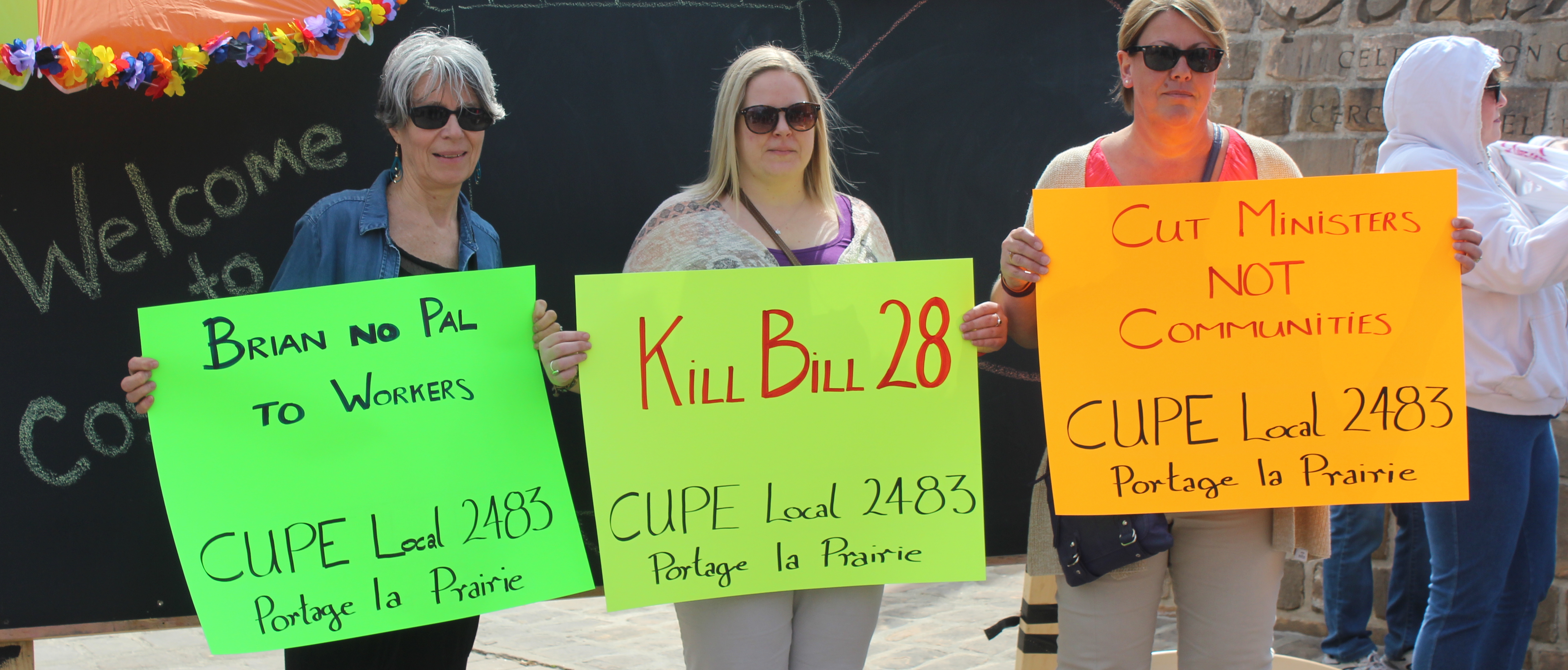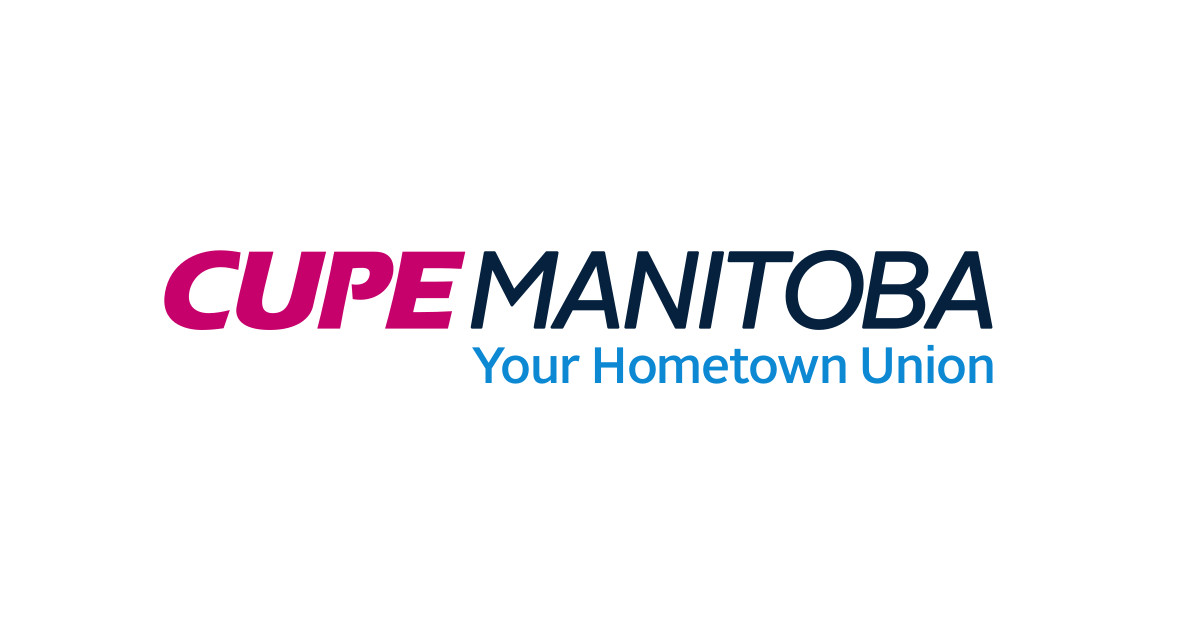BRANDON – Delegates at the 2019 CUPE Manitoba Convention in Brandon elected Abe Araya as President of the province’s largest union. Abe Araya comes from CUPE Local 110, representing custodians, maintenance, and painters at the Winnipeg School Division.
“Our union is focused on fighting back against cuts to health care, education, social services, and privatization,” said Araya. “Despite Brian Pallister’s attempts to divide working people, we will be uniting workers from across Manitoba to put a stop to Pallister’s austerity agenda.”
Delegates at convention voted in support resolutions, ranging from health and safety in the workplace, anti-oppression training for activists, pushing back against privatization, fighting against health care and education cuts, and supporting the Green New Deal.
“CUPE is an incredibly diverse uni on,” said Araya. “With the strength of Manitoba’s largest union, we will be on the front line defending public health care and education, public Hydro, and fighting for properly funded childcare and social services for all Manitobans.”
on,” said Araya. “With the strength of Manitoba’s largest union, we will be on the front line defending public health care and education, public Hydro, and fighting for properly funded childcare and social services for all Manitobans.”
CUPE’s annual convention featured guest speakers, including NDP leader Wab Kinew, NDP Critic for Infrastructure and Municipal Affairs Matt Wiebe, NDP Member of Parliament for Winnipeg Centre Leah Gazan, Winnipeg School Division Trustee Yijie Chen, and Manitoba Health Coalition Director Breanne Goertzen.
CUPE National President Mark Hancock and CUPE National Secretary-Treasurer Charles Fleury spoke to delegates, committing the full strength of CUPE’s 700,000 members to fight against cuts and privatization.
Manitoba Federation of Labour President Kevin Rebeck provided updates on labour’s united front against Bill 28 (The Public Services Sustainability Act) and committed to fight against the Pallister government’s unconstitutional wage freeze.
Two hundred people rallied outside Brandon City Hall with CUPE Local 69 on Wednesday evening, voicing concern over the contracting out of work at the Wheat City Golf Course.
Gord Delbridge, President of CUPE Local 500 served as interim CUPE Manitoba President throughout 2019. Delbridge continues to serve as Vice-President of CUPE Manitoba. Barb Gribben of CUPE Local 737 was this year’s recipient of the prestigious Jack Rodie Award, recognizing dedication and activism in the union.
“Our union is stronger, and more united than ever,” said Araya. “Manitobans can count on CUPE to defend good jobs, and fight for our public services.”
The Canadian Union of Public Employees is Canada’s largest union representing more than 700,000 members. In Manitoba, CUPE represents over 36,000 members working in health care facilities, personal care homes, school divisions, municipal services, social services, childcare centres, public utilities, libraries and family emergency services.













